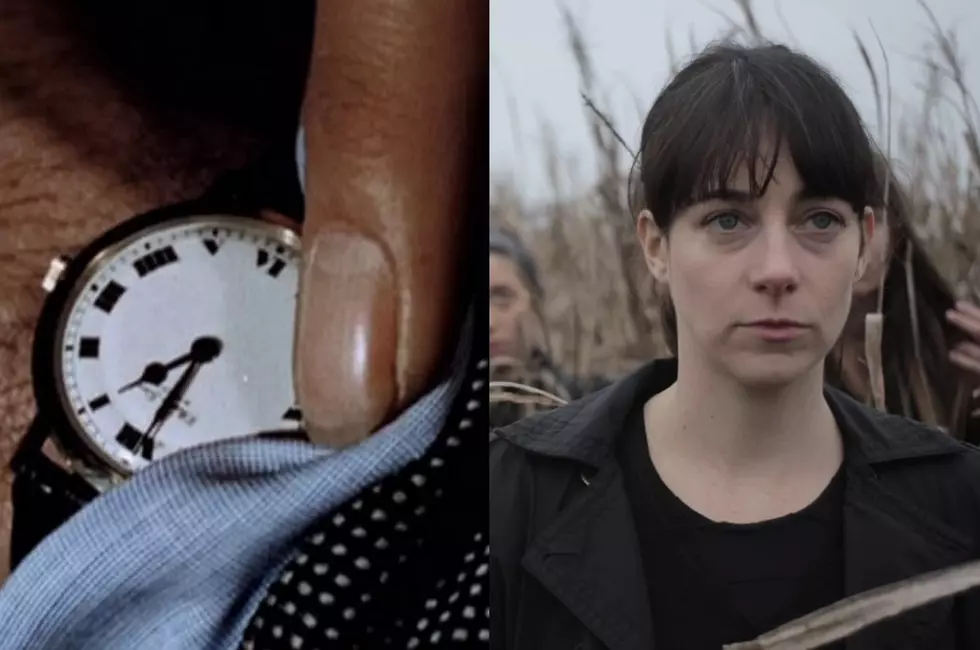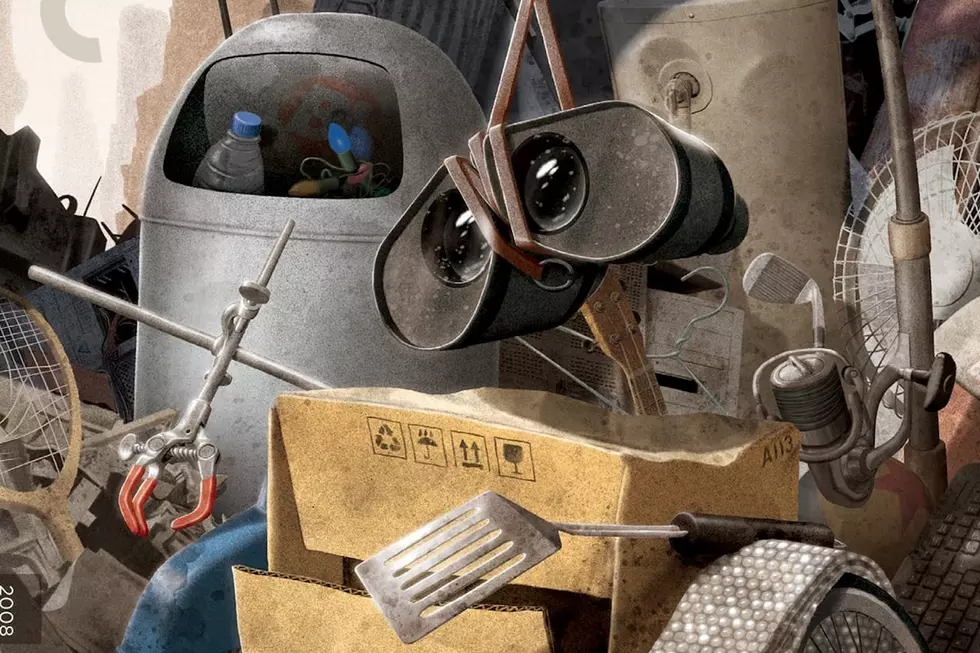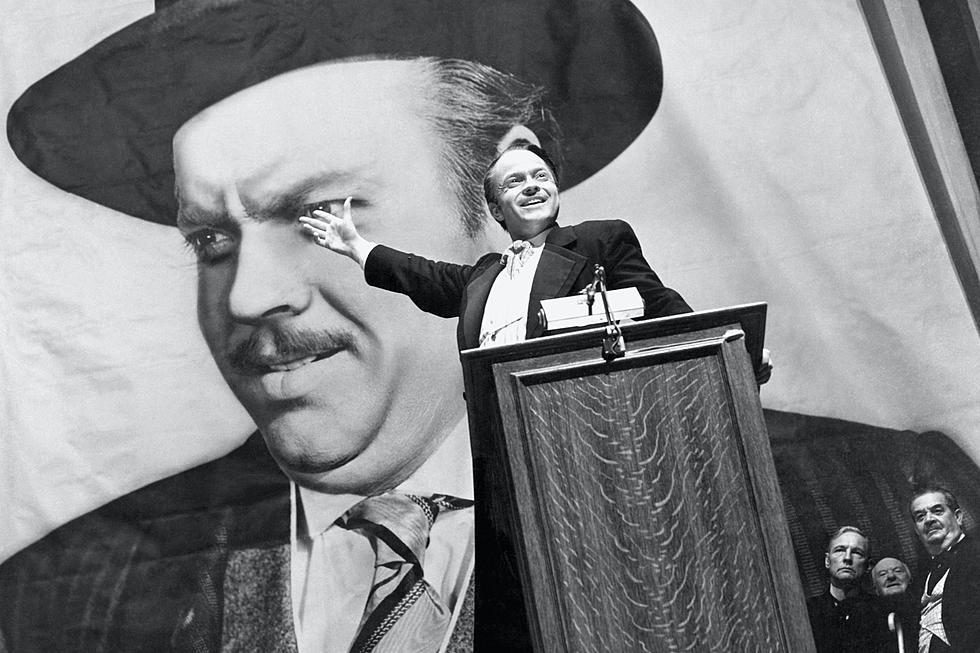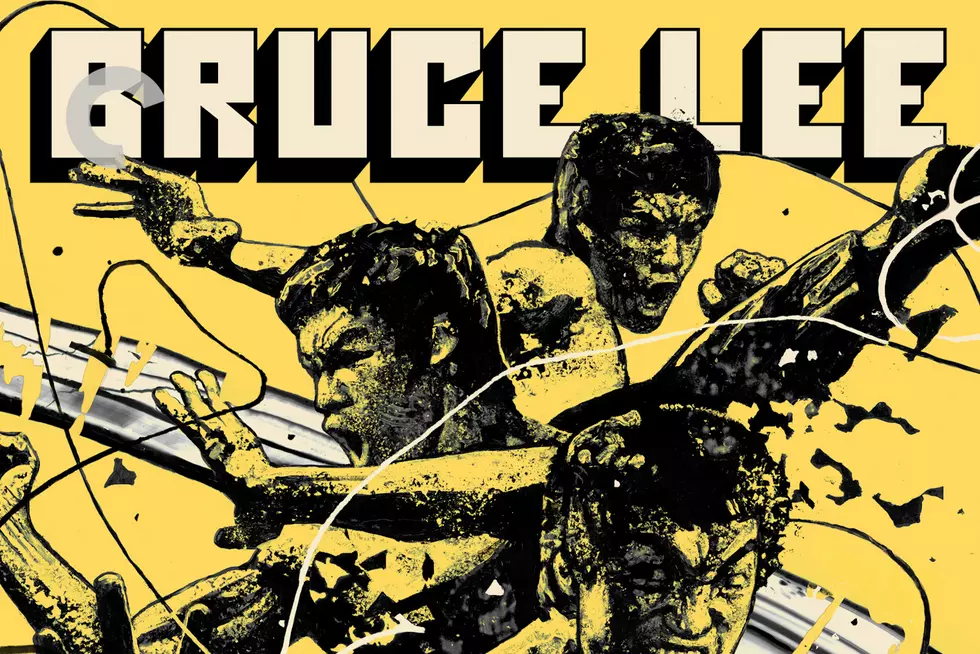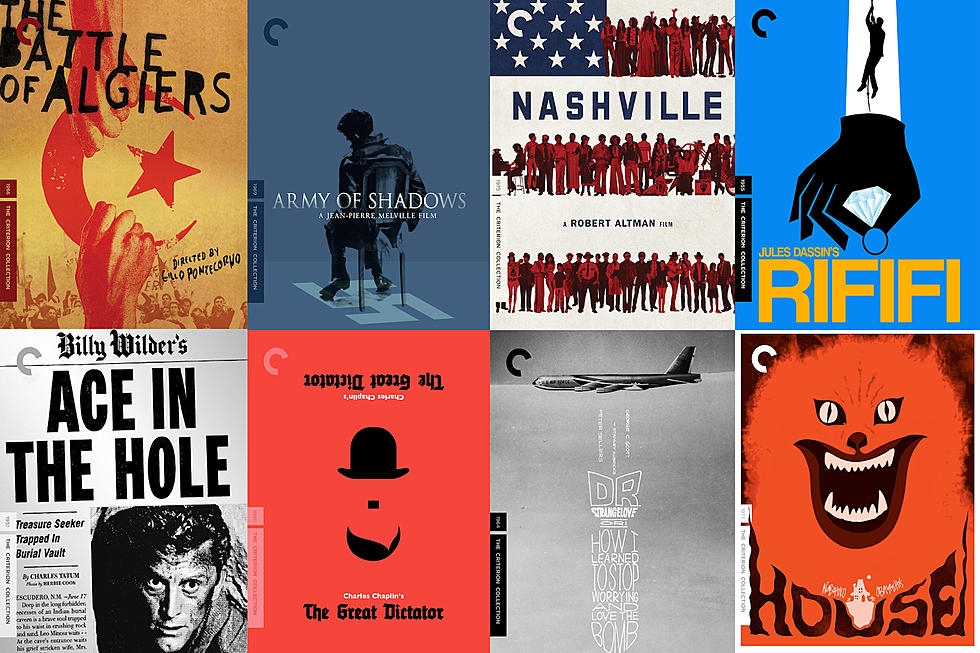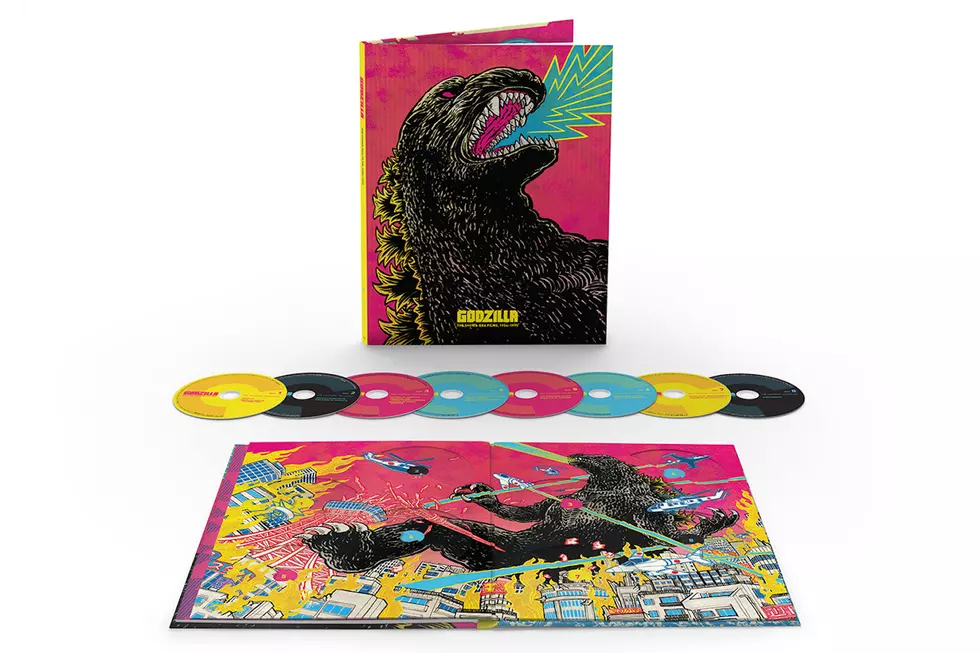
‘La Bamba’ Director Luis Valdez on Joining the Criterion Collection
As a kid growing up in suburban New Jersey in the 1980s, a handful of movies captivated my imagination, most of them the obvious titles you would expect: Star Wars, Ghostbusters, Raiders of the Lost Ark. Clearly I had a type: Epic adventures with enormous effects, lots of humor, and a happy ending.
The one exception to the rule was La Bamba, the 1987 musical biography about rock and roll legend Ritchie Valens (Lou Diamond Phillips), who shot to stardom by the age of 17 and died just a few months later in the tragic plane crash that came to be known as “The Day the Music Died.” In a compact 108 minutes, La Bamba captures both the highs and the lows; energetic concert sequences (with Valens music performed by Los Lobos) are interspersed with scenes that emphasize the hardships Ritchie faced in 1950s California, including poverty, racism, and his complex relationship with his half-brother Bob (Esai Morales), who adored Ritchie but was also intensely jealous of his potential and perpetually frustrated with his own lack of opportunities, a toxic mix that inflamed Bob’s alcoholism and his abuse of his family members.
Despite its sad ending and serious themes, La Bamba became one of my most-watched movies when I was young. In an era where musical biopics are even more commonplace, it remains a deeply moving film with outstanding music and performances; few modern biographies can hold a candle to its swaggering rock energy and devastating finale. So I was delighted to see the film added to the Criterion Collection — and even more excited when I was given the opportunity to speak to its director, Luis Valdez, about making the film and the unique power it continues to hold for both young and old audiences.
READ MORE: The Best Movie Musicals of the 21st Century
ScreenCrush: You ready to go?
Luis Valdez: Yeah, let’s go.
Actually, I was just looking at some of the features on the Criterion disc; wasn’t “Let’s Go” the original title of the movie before it became La Bamba?
Yes. But it was taken by another movie, fortunately, because La Bamba was so much better. The concern there was that people would think it was a foreign movie or something. [laughs] But actually, it worked in our favor, because “La Bamba” was already part of the rock and roll lexicon, even if they didn’t know what it meant. It worked out for us. It was serendipitous.
I really loved this movie as a kid. And when I mentioned that I was speaking to you to a couple friends, I heard the same response every day: “Oh man, I love La Bamba.” For a very tragic story, the movie really resonates with young audiences. I’m wondering if you had a younger audience in mind when you were writing it, and why you think young people who weren’t even alive when Ritchie was releasing music — and might not have even heard of him before — have such a strong reaction to this story.
Well, I think everybody, but particularly teenagers, have dreams of making it in the world, and especially in music or art. That’s a very youthful sort of motivation. So I think every young person can really identify with hopes and dreams of becoming a rock and roll musician. At the same time, I think young people still relate to their siblings in some ways, and they’re working their way through life, and the idea of sibling conflict is pretty close to them. Now some people never outgrow sibling conflict, but most people do; they mature and they realize their siblings are human beings like they are. But when you’re a teenager, the idea of conflicting with your younger or older siblings is a way of life, you know?
I got those stories directly from Bob, who must have been in his 50s when I interviewed him. Those were his memories. And what’s good and noble about Bob is he took the blame onto himself. He said “I was the bad guy. I was the one that was giving Ritchie a lot of trouble.” He blamed it on his drinking. But the fact that he allowed me to do that ... he said “Represent me in any way you want. Just tell the story.” And I think that was a tribute to him and to his maturity, but also his love for Ritchie.
Yeah, I wanted to ask you about the depiction of Bob, which is pretty unflinching; it doesn’t shy away from the things he did to Ritchie and especially to Rosie. You mentioned that you interviewed him and he gave you permission to tell the story how you saw fit. I am curious what he thought of the final movie when he saw it, because ... I wouldn’t say he is the villain of the film, but he is certainly depicted in an unflattering light at times.
Well, let me back it up a little bit. The idea for the movie actually occurred at the premiere of my play, Zoot Suit, on Broadway. We were in my brother’s dressing room; he was playing one of the leads. We were on Broadway, and we were saying “Okay, we’ve done the ’40s, what are we going to do with the ’50s? We should come back with a rock and roll story. But what story can we tell?” And at that exact moment, we heard music coming from below the Winter Garden Theater on the Seventh Avenue side. Down below on the street, there was a group of mariachis serenading us. We didn’t know at the time, that this group had been sent by the President of Mexico to celebrate us on opening night. And they were playing “La Bamba.”
We recognized it right away and it answered our question: What should we do next? We looked at each other and we said “La Bamba!” That was the spark. Well, for the next five years, my brother Daniel took it upon himself to locate [Ritchie’s] family and do some of the research. But we couldn’t find the family. They weren’t in L.A. anymore. They weren’t in the San Fernando Valley.
It turns out that where we live, close to Monterey and Watsonville in this little mission town called San Juan Bautista, we have this local saloon called Daisy's Saloon, which is very popular with bikers. One day, someone came over to my brother’s house and said “Hey, you know, Ritchie Valens’ brother is over at Daisy’s.” So he rushed over there and we made contact with Bob and Bob introduced us to his mother.
Knowing that I had no book and very few articles to go by, I decided to interview them on video tape, so that I could see their expressions. I interviewed both [Ritchie’s mother] Connie and Bob, and Bob Keane, Ritchie’s manager, and Donnie Ludwig of “Donna” fame. That was the basis of my screenplay, what they told me. And they were pretty honest. And Bob was the most honest of all. He said “I was a bastard. You tell whatever story you want to tell. But Ritchie was a nice guy. He was a great brother.”
I could tell there was still grief there, there was still a sense of guilt, actually. And so I told Bob, “Well, thank you. I’m gonna make a hero out of you.” And of course, it was more as an anti-hero as it turned out. But he was happy with the result. He said in interviews as we were promoting the movie that he felt that I had been a fly on the wall of the family’s house.
We needed Bob, because nobody had anything negative to say about Ritchie! Everybody universally said he was a nice guy; the best kind of son, the best kind of nephew, the best kind of friend you could ever have. I said, “Well, I can’t do much with this. He’s too good!”
[laughs]
So I kind of laid it on Bob, and made him the bad guy, make him the antagonist. But again, it’s an antagonist in terms of someone who loves his brother but can’t help himself but to compete with his brother.
In that five years of research, were there any points in the process where the film almost looked very different where the La Bamba we all know today? Did you make any drastic changes along the way?
Well, I’ll tell you. Once I’d done the research and did my outline, I was hired by Taylor Hackford and his company to write the script I think around November of ’85. And so I went into the screenplay over December. I had a draft by January and we were green-lighted in February. So that’s lightning speed as movies go. So the idea is that it came out almost like Venus out of the shell; it was fully formed already. I’ve written many screenplays since then and before that. And I must say that La Bamba was a sweetheart. It was really meant to be. It fell into place in every way. Within a year of really just sealing the deal to do the screenplay, we were in production. And that rarely happens. And the movie worked. The story worked on paper, and the movie worked on film.
What was your reaction about the film going into the Criterion Collection?
I’m very proud that the film has been accepted for the Criterion Collection. What it forebodes is the film will be remembered and preserved. I’m a fan of the Criterion Collection. It’s a tremendous resource, and it’s a treasury of great films, so to be included is a real honor.
If you’re out somewhere these days and “La Bamba” comes on the radio, what do you think about when you hear the song now?
When I hear it at different places, I’m able to connect with the tremendous impact that Ritchie Valens had on the world by taking this folk song and turning it into a rock and roll classic. It was his achievement, that young kid, way back when he was 17 years old.
We were more or less the same age; I am about six months older than Ritchie. And I remember those times. I remember the aspirations we had at that time, trying to be as American as we could be. And certainly the idea of becoming a rock star was the height. That was the top of the line, you know? And so to have “La Bamba” playing again, again, all over the world — and by the way, I’ve heard this song all over the world. That “La Bamba” is still played is one of Ritchie’s achievements. And I’m very proud of the fact that the film worked and that it remains meaningful to young people who maybe weren’t even born when the film was made, but nevertheless can relate to it because there’s the eternal spirit of his musicality and his genius captured in the story.
The Criterion Blu-ray of La Bamba is available now.

DVDs That Sold For Shocking Amounts of Money
More From ScreenCrush
